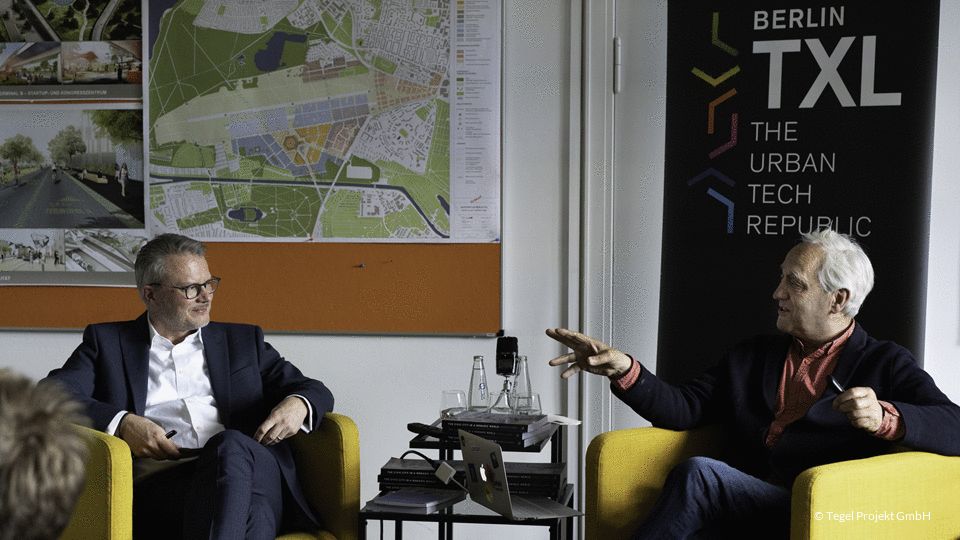Where do we belong when everything is in upheaval? This question is not only on the minds of many Berlin residents, it also sums up the life’s work of cosmopolitan Charles Landry. Born in London, he went to Munich and Bologna for his education. As an urban planner, he has been an internationally recognised consultant for the development of cities for more than 40 years; he is associated with Berlin as a Fellow of the Robert Bosch Academy, among other things. At the third edition of the “Urban Persuasion” series of talks on 29 May 2019, Landry discussed solutions for “The Civic City in a Nomadic World” – also the title of his latest book. Modern nomadism characterises Berlin through the many people who, at the latest since the fall of the Berlin Wall, have become enthusiastic about the city and move here, not infrequently as a temporary stop on the way to the next pool of emerging talent. But not all “pull cities” – as Landry calls them – succeed in making sustainable use of the absorbed potential. “Talent, technology, tolerance – the famous ‘3Ts’ of economist Richard Florida still seemed to guarantee the economic growth of cities in the early 2000s,” Philipp Bouteiller, CEO of Tegel Projekt GmbH, analysed in an interview with Charles Landry.
“Reality has now corrected this certainty to some extent.” With the concept of the Civic City, Landry tries to turn the nomadic creative class into real citizens and make them responsible for the needs of their urban habitats. Through an imperative of participation, he wants to animate the inhabitants of a city to think beyond self-interest. The 70-year-old sees urban planners facing a task that requires a rethink among professionals of structures cast in concrete: “We need to create places of encounter and empathy in our cities.” Charles Landry already recognises such places for encounters in the plans for the Urban Tech Republic, and Philipp Bouteiller sees precisely in the use of existing structures a way to further develop a city while at the same time preserving its essence: “In Tegel we are reprogramming the old, because new ideas sometimes need old buildings.”
